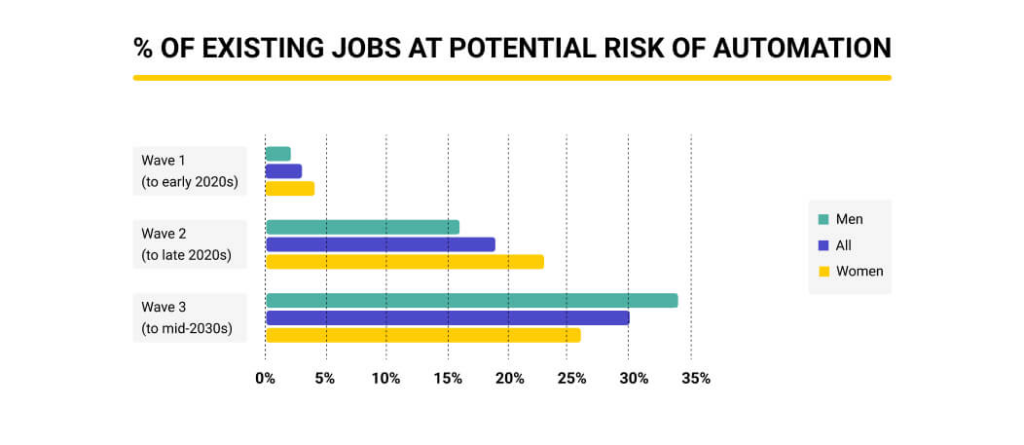The rise of Artificial Intelligence (AI) continues to raise concerns over job automation. In response, several leading Information and Communication Technology (ICT) companies have united to form the AI-Enabled ICT Workforce Consortium (ITC). Spearheaded by Cisco and supported by heavyweights like Google, Microsoft, IBM, Intel, SAP, and Accenture, this consortium aims to confront the narrative that AI technology spells doom for employment within the ICT sector. By focusing on reskilling and upskilling, the ITC is committed to turning the tide of pessimism, especially amidst reports of significant layoffs due to technological advancements.
What’s Happening & Why This Matters
UPS’s recent layoffs, attributed partly to new technologies including AI, alongside IBM’s pause on hiring for roles susceptible to automation, fueled worker anxieties about AI’s impact on employment. A McKinsey survey revealed that 25% of business professionals anticipate layoffs due to AI adoption. This concern is further underscored by Beautiful.ai’s finding that nearly half of managers are looking to replace workers with AI.
The ITC consortium is determined to challenge these fears through a comprehensive strategy that includes research, evaluation, and the development of training programs tailored to an AI-enabled ICT workforce. By investigating AI’s impact on 56 strategically significant ICT job roles, the consortium aims to offer training recommendations that not only mitigate job losses but also prepare workers for the future.

This initiative is crucial in Europe and the U.S., where the ICT sector employs a significant portion of the workforce. The consortium’s efforts could pave the way for a more resilient and adaptable ICT industry. A newly trained, skilled and confident workforce is more capable of harnessing AI’s potential, rather than becoming victims of its replacement.
As the consortium plans to publish its findings and recommendations in a report in Summer 2024, the tech community and workers await concrete actions that will substantiate the promise of a secure employment versus AI adoption. Though a path forward is not fully outlined, the consortium’s formation is a step toward reconciling the rapid advancement of AI with the need for job security and career development in the ICT sector.
TF Summary: What’s Next
The AI-Enabled ICT Workforce Consortium’s upcoming report is highly anticipated. It will provide insights into practical steps that can ensure the workforce is prepared for an AI-supported future. As the consortium contemplates its next phase, the broader implication is clear: the tech industry plays a pivotal role in ensuring that the advancement of AI technology enhances rather than diminishes employment opportunities.
The success of this initiative could set a precedent for how other industries approach AI integration and their workforces.



